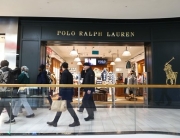Medical materials and other goods shortages caused by the COVID-19 pandemic quickly became a major issue of the pandemic. The matter of pandemic-related shortage has been studied in the past and has been documented in recent events. On the medical side, shortages of personal protective equipment such as medical masks, gloves, face shields, gear, sanitizing products, are also joined by potential shortage of more advanced devices such as hospital beds, ICU beds, oxygen therapy, ventilators and ECMO devices.
Following warnings and increased preparedness in the 2000s, the 2009 swine flu pandemic led to rapid anti-pandemic reactions among Western countries. The H1N1/09 virus strain, with mild symptoms and low lethality, eventually led to a backlash over public sector over-reactiveness, spending, and the high cost/benefice of the 2009 flu vaccine. In the following years, national strategic stockpiles of medical equipment were not systematically renewed. French health authorities decided in 2011 to not replete their stocks, to reduce acquisitions and storage costs, and to rely more on supplies from China and just-in-time logistics, and to distribute the responsibility to private companies on an optional basis. The French strategic stockpile dropped in this period from one billion surgical masks and 600 million FFP2 masks in 2010 to 150 million and zero, respectively, in early 2020.
Several public (WHO, World Bank, Global Preparedness Monitoring Board) and privateinitiatives raised awareness about pandemic threats and needs for better preparedness. International divisions and lack of suitable collaboration limited preparedness. WHO’s pandemic influenza preparedness project had a US$39 million two-year budget, out of WHO’s 2020–2021 budget of US$4.8 billion. While WHO gives recommendations, there is no sustained mechanism to review countries’ preparedness for epidemics and their rapid response abilities.
First signs and warnings were due to an abnormal viral pneumonia of unknown cause in December 2019. That month, Taiwan sent several of their Centers for Disease Control doctors to Wuhan to inspect the local situation. Following confirmation of an emerging crisis and as soon as 31 December 2019,Taiwan started to implement non-pharmaceutical measures such as travellers temperature checks, GPS tracking, connecting past-15 days travel history into its universal universal national healthcare database, closing travel lines to/from Wuhan and stockpiling personal protection equipment such as medical masks. While well informed and lauded for its virus containment, Taiwan could not weigh into the World Health Organization‘s reactions due to mainland Chinas long-standing policy of preventing Taiwan from joining global organizations.
As the Wuhan outbreak spread in January 2020, China began blocking exports of N95 masks, booties, gloves and other supplies produced by factories on its territory; organisations close to the Chinese government scoured foreign markets for PPE as late as February. This created an unanticipated supply collapse for most other countries relying on it.
Although the vast majority of PPE is produced in China, domestic supplies were insufficient. The Chinese government took control of stocks from foreign enterprises whose factories produced these goods. Medicon, whose three factories produced such supplies in China, saw their stocks seized by the Communist Party-led government. Figures from China Customs show that some 2.46 billion pieces of epidemic prevention and control materials had been imported between 24 January and 29 February, including 2.02 billion masks and 25.38 million items of protective clothing valued at 8.2 billion yuan ($1 billion). Press reported that the China Poly Group, together with other Chinese companies and state-owned enterprises, had an important role in scouring markets abroad to procure essential medical supplies and equipment for China.
In late-March/early-April 2020, as Western countries were in turn dependent on China for supplies of masks and other equipment, European politicians e.g. the EU chief diplomat Josep Borrell accused China of a soft-power play to influence world opinion. Also, some of the supplies sent to Spain, Turkey, and the Netherlands were rejected as being faulty. Dutch health ministry issued a recall of 600,000 face masks from a Chinese supplier on 21 March that did not fit properly and whose filters did not work as intended despite them having a quality certificate; The Spanish government discovered that 60,000 out of 340,000 test kits from a Chinese manufacturer did not accurately test for COVID-19.







Add Comment